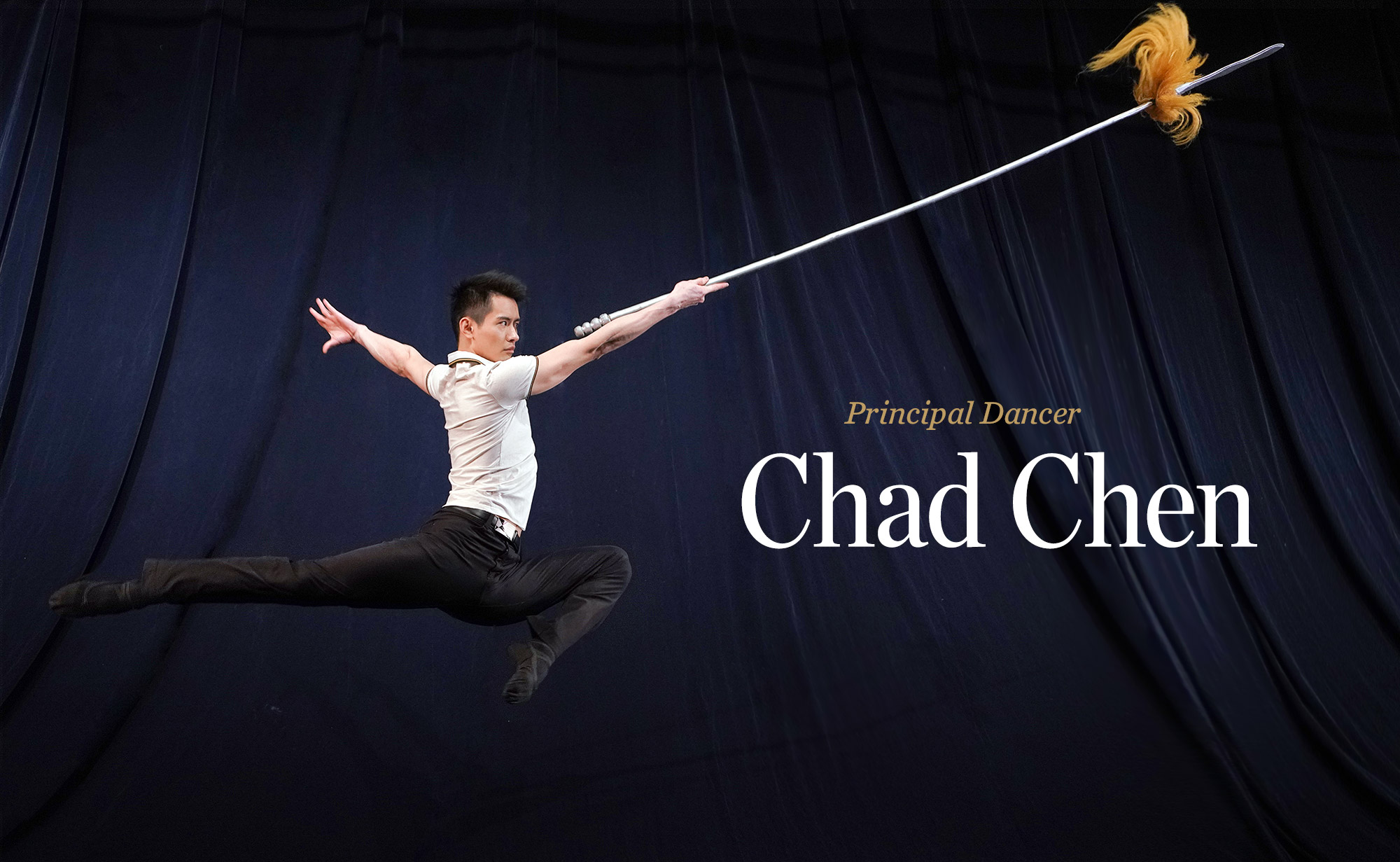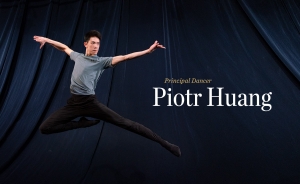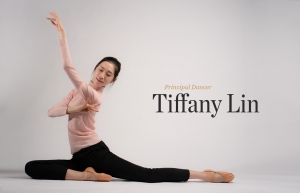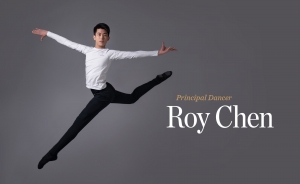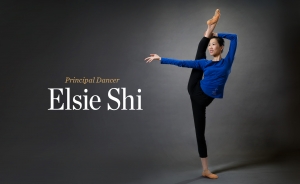Principal dancer Chad Chen is one of Shen Yun’s most dynamic artists. Known for his perfectionism and extraordinary dedication, Chen brings to the stage an energy that is spontaneous yet refined. Since 2008, he has captivated audiences in roles such as the loyal general Yue Fei and the immortal poet Li Bai.
Chen is the three-time gold-award winner of New Tang Dynasty Television’s International Classical Chinese Dance Competition. Originally from Taiwan, he moved to New York to study classical Chinese dance at Fei Tian Academy of the Arts and Fei Tian College, where he also obtained an MFA in choreography.
In this installment of Artist Spotlight, Chen discusses his artistic journey and thought process.

Chad Chen
“I think the message we are trying to bring to the audience outshines anything else, because spreading a positive message is the true purpose of art.”
12 Questions with Chad
What’s your first memory of dance?
Before I took up dance, I did track and field in school, which kept me pretty fit. So when I began dancing, one of my first realizations was that dance conditioning was actually less intense than track and field conditioning.
What’s your favorite city to visit on tour and why?
Tokyo. Everything’s very convenient, just like in my hometown in Taiwan, but it’s not as hot in Tokyo.
What do you like most about performing on stage?
When I play certain characters onstage, I feel much more alive than when I’m just being myself offstage.
Sometimes when I’m in the creative zone I feel like I’m channeling emotions and mannerisms that don’t belong to me, the current me. But they come out so “naturally,” as if they come from deeper inside. It feels really amazing. Perhaps it’s like when people talk about experiencing things from past lives.
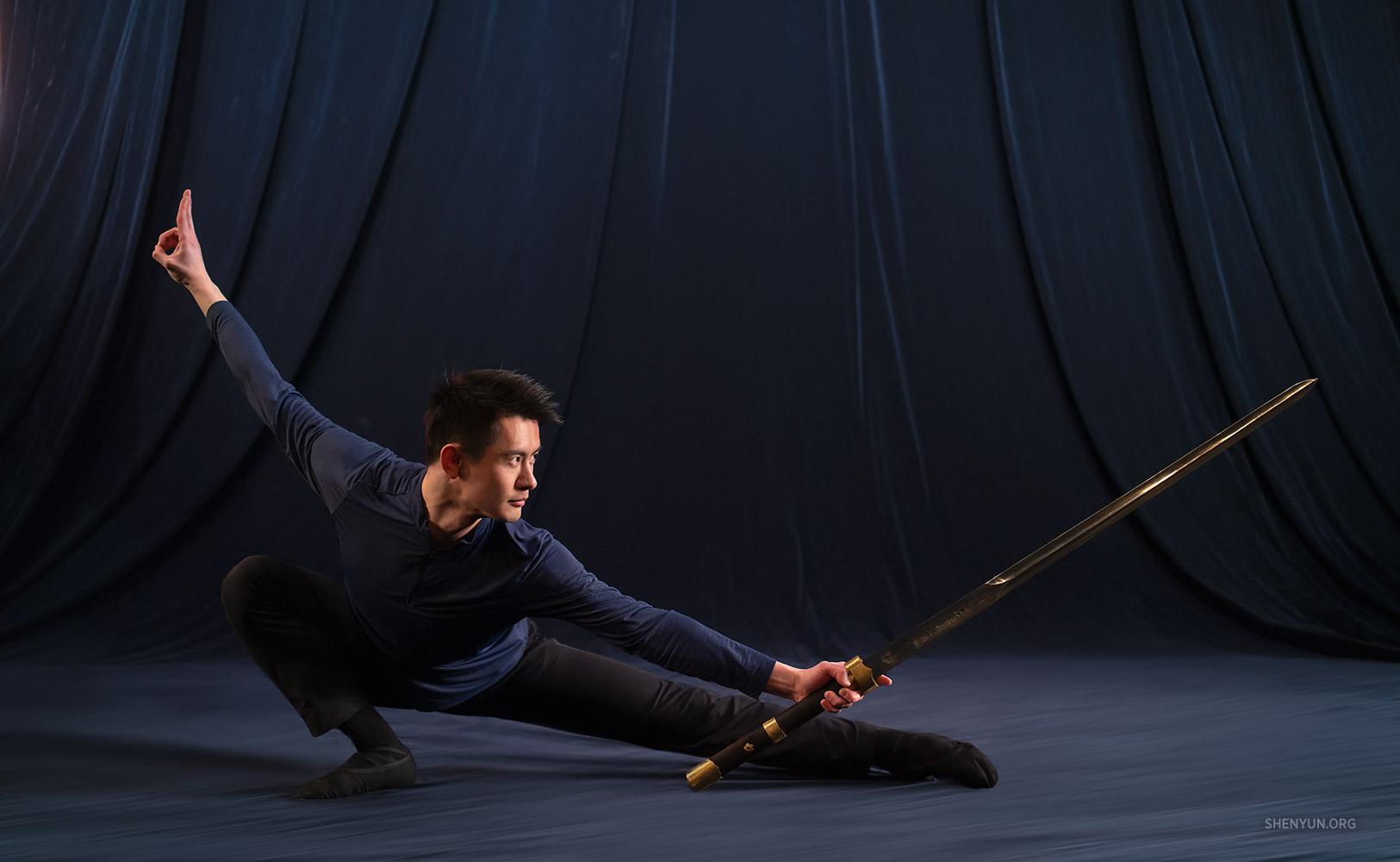
What are 3 things you always take on tour with you?
My imagination, a project, and a plan. Or, more practically speaking: T-shirts, pants, and socks.
What is your favorite food?
My brother-in-law’s Kobe steak or his fried chicken.
What is the most interesting thing someone told you after seeing the show?
Once I put a lot of effort into portraying a role. Afterwards, however, not an audience member but my mentor told me my interpretation was pretty off. This experience taught me to always consider my acting from the audience’s perspective. And it reminded me to keep my own personality in check when acting, in order to let the character shine through.
What do you think differentiates classical Chinese dance from other dance forms?
Dance is a form of language. And among different dance forms, classical Chinese dance is particularly expressive.
Classical Chinese dance opens up your imagination to ancient Chinese culture. There have been many instances when a certain movement, or the meaning behind a movement, really spoke to me and inspired me. And the more you understand the movements, the better you can use them to express yourself.

Did you ever have stage fright or a scary moment on stage?
I once had a role where the choreography included 20 technical moves in one act. At the beginning, it was pretty intimidating, both physically and mentally, so I really had to muster up the courage and determination to pull through.
How do you deal with physical challenges in dance?
Benjamin Franklin once said: "In this world, nothing is certain except death and taxes." What I tell myself is: As a dancer, nothing is certain except pain and sweat.
Pain is a normal part of life as a dancer, but it's through maintaining a positive outlook that I can keep going.
Who is your favorite historical figure and why?
I really admire the people who accomplish great things but don’t ask for fame or recognition for their deeds, those who try to erase their names from history, because they are the ones with the most epic stories.
What are you thinking right before the curtain goes up?
Our opening piece is set in the heavens, and this always makes me think of where I came from, and why I’m part of Shen Yun.
And when the curtain rises, I’m hoping that the heavenly scene can rekindle something in the hearts of the audience, to remind them of where they came from, their true home, and their connection with the divine.
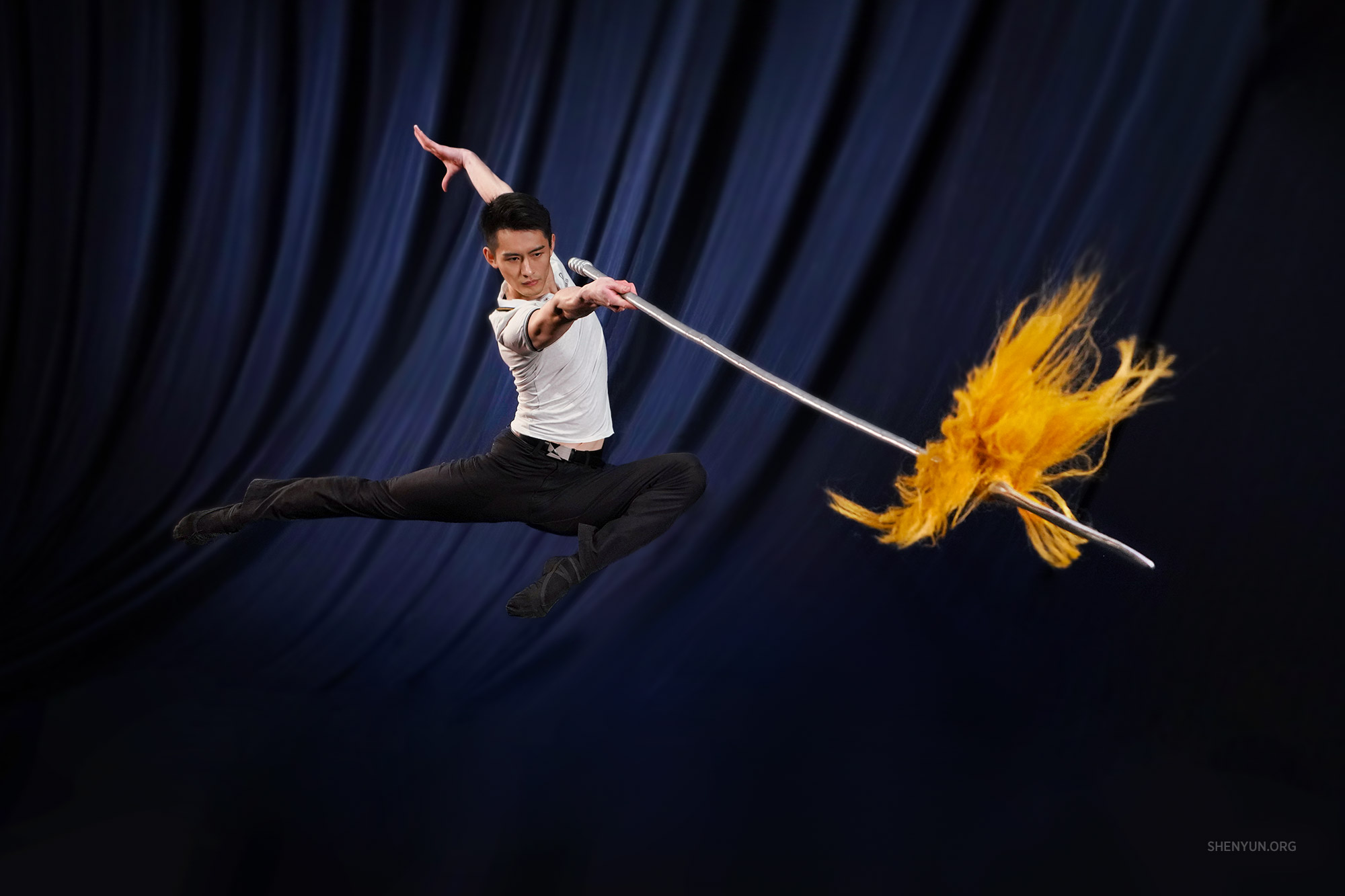
Tell us a personal story. How did you come to be where you are today?
Once I snapped my spear in half right before I had to go onstage. It was a custom-made spear that I always used, so I was very familiar with it, its length, and the way it balanced. But at that moment, I had to overcome all my anxieties and perform with a backup.
I think unexpected incidents like this really test you as a performer. Thinking back, if that had happened when I was younger, I probably would’ve been more panicked and wouldn’t have handled it as well. This made me realize that maturing as a performer means not only maturing in dance, but also as a person.
Check out ShenYun.com/tickets for the city nearest you.
Click here to watch the full video.


